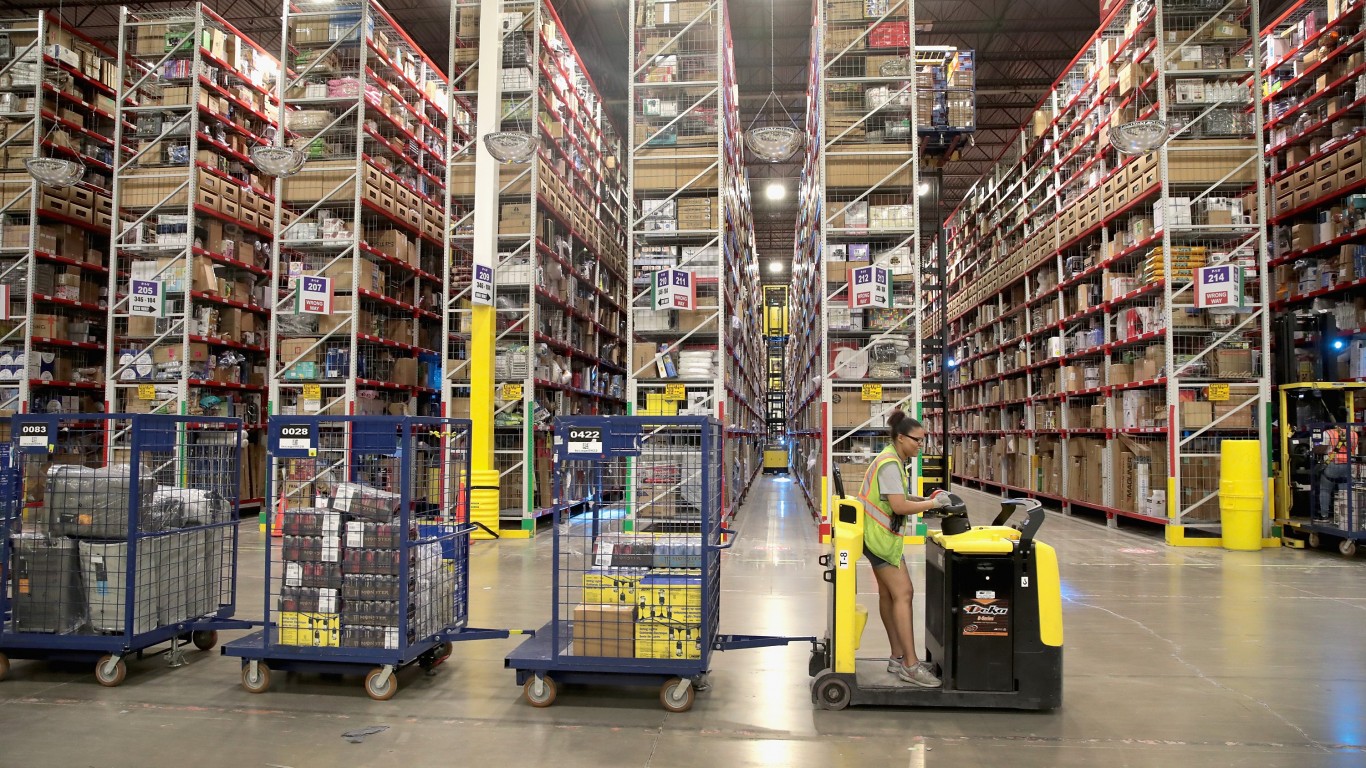
Warehouses are part of the hub system used by many large retailers and shippers. They keep goods close to customers so orders can be fulfilled quickly. Their operations can be immensely sophisticated, as large shipments come in by rail, truck or plane and eventually are broken down to the individual customer level. Among the biggest operators of warehouses and warehouse-like facilities are the U.S. Postal System, UPS, FedEx and Amazon. Amazon is the second-largest public company employer in the United States.
Warehouse workforces are usually made up of what the distribution industry calls unskilled laborers. These workers often have low educational rates and may be paid little more than the highest state minimum wages. At Amazon, the lowest base pay is $18 an hour. Employees in some parts of the country have objected enough to Amazon’s pay and benefits that they have considered unionizing. In some places, that already has happened.
Warehouses can be dangerous places to work. Their functions involve heavy equipment and machines. Worker injuries, although infrequent based on a percentage of all workers, can knock people out of their jobs, sometimes for extended periods.
The Strategic Organizing Center, which has been formed by four unions (Service Employees International Union, International Brotherhood of Teamsters, Communications Workers of America and United Farmworkers of America), recently released an in-depth report on worker injuries in warehouses titled “The Injury Machine: How Amazon’s Production System Hurts Workers.”
The primary results of the research are that in 2021, the serious injury rates in Amazon’s warehouses was 6.8 per 100 workers, which compared to 3.3 at non-Amazon warehouses. Amazon employed 33% of all U.S. warehouse workers that year but accounted for 49% of all injuries.
Among the suggestions the report makes to improve injury rates at Amazon’s warehouses is that the company “slow the pace of work or ease the pressures of its oppressive monitoring systems.”
Is the report biased because it was conducted by unions? Based on how solid its statistics are, probably not.
Click here to see the 50 best companies to work for.
Travel Cards Are Getting Too Good To Ignore (sponsored)
Credit card companies are pulling out all the stops, with the issuers are offering insane travel rewards and perks.
We’re talking huge sign-up bonuses, points on every purchase, and benefits like lounge access, travel credits, and free hotel nights. For travelers, these rewards can add up to thousands of dollars in flights, upgrades, and luxury experiences every year.
It’s like getting paid to travel — and it’s available to qualified borrowers who know where to look.
We’ve rounded up some of the best travel credit cards on the market. Click here to see the list. Don’t miss these offers — they won’t be this good forever.
Thank you for reading! Have some feedback for us?
Contact the 24/7 Wall St. editorial team.


